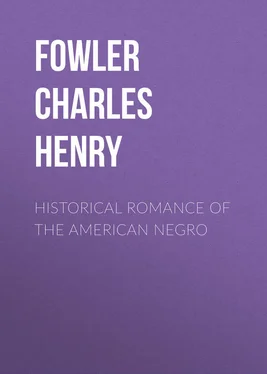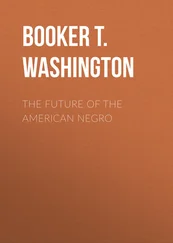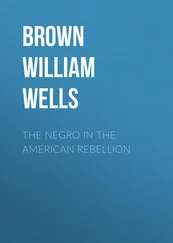Charles Fowler - Historical Romance of the American Negro
Здесь есть возможность читать онлайн «Charles Fowler - Historical Romance of the American Negro» — ознакомительный отрывок электронной книги совершенно бесплатно, а после прочтения отрывка купить полную версию. В некоторых случаях можно слушать аудио, скачать через торрент в формате fb2 и присутствует краткое содержание. Жанр: История, foreign_antique, foreign_prose, на английском языке. Описание произведения, (предисловие) а так же отзывы посетителей доступны на портале библиотеки ЛибКат.
- Название:Historical Romance of the American Negro
- Автор:
- Жанр:
- Год:неизвестен
- ISBN:нет данных
- Рейтинг книги:5 / 5. Голосов: 1
-
Избранное:Добавить в избранное
- Отзывы:
-
Ваша оценка:
- 100
- 1
- 2
- 3
- 4
- 5
Historical Romance of the American Negro: краткое содержание, описание и аннотация
Предлагаем к чтению аннотацию, описание, краткое содержание или предисловие (зависит от того, что написал сам автор книги «Historical Romance of the American Negro»). Если вы не нашли необходимую информацию о книге — напишите в комментариях, мы постараемся отыскать её.
Historical Romance of the American Negro — читать онлайн ознакомительный отрывок
Ниже представлен текст книги, разбитый по страницам. Система сохранения места последней прочитанной страницы, позволяет с удобством читать онлайн бесплатно книгу «Historical Romance of the American Negro», без необходимости каждый раз заново искать на чём Вы остановились. Поставьте закладку, и сможете в любой момент перейти на страницу, на которой закончили чтение.
Интервал:
Закладка:
Thus the grand storm went on, increased and grew. Fred. Douglass, William Lloyd Garrison, and many other famous writers continued to issue their papers week by week, or month by month. The agitation was kept at fever heat by all sorts and conditions of men and women. Still the Abolitionists did not have the entire field to themselves, for there were thousands and thousands of people in the Northern states who believed in slavery for the colored man as much as the Southern slave-holder himself, away down in Louisiana and Georgia. But Henry Ward Beecher, Mrs. Harriet Beecher Stowe, and others without number continued to lay on with hard licks and steady blows; the public conscience of the free States became more and more educated, and the people in general came to take a sympathetic interest in the oppressed African they had never done before. The presence of the poor, oppressed fugitive slaves in their meetings, and seen streaming along the North towards the Great Lakes and Canada, with the marks of the "peculiar institution" stamped for life upon their backs, were proof positive that none could deny. The furious quarrel was carried into the halls of Congress at Washington, and the South was unable to keep it out, though they made the most determined efforts to do so. The Quakers and all the friends of the slaves were forever at it, ding-dong, hammer and tongs, and thus the family quarrel went on. John Brown and free-soil men were in Kansas, and so were the "Border Ruffians" who came pouring in from Missouri and the South, being determined to carry Kansas and all other new States and territories into slavery like the rest of the slave States in their rear. And still the great American family quarrel went on, increased and grew, and the Christian voice of the North declared, "Thus far shalt thou come and no further; and here shall thy proud waves be stayed." The far-away Christian nations of the world watched the gathering of the coming tempest from over the seas, and it was apparent to their unobscured vision that a fearful judgment was coming upon America, and that it would not be long in coming, either.
The escape of mother and Tom and myself from slavery caused no small sensation in and around Buffalo. An endless tide of visitors came on to see us, and they had a thousand questions to ask us about our early life and experiences in Kentucky and Louisiana. As Lemuel Jackson had caused us to be duly educated, so that we could even play the piano well, we were rather more fortunate in the line of education than most of our fugitive brothers and sisters. In those days, great anti-slavery demonstrations were all the go. The announcement that some great national abolitionist was to be on hand at the Hall, to address the general public on the wrongs and crimes of slavery, would pack the whole place, and sometimes the crowds that came could not find even standing room. Then music was added at times, songs were sung, even brass and stringed bands were brought into play, and everything was done to draw the prohibition hosts of the great North, then to keep them there, and finally to make them come again.
The Abolitionists took advantage of our presence in Buffalo to help one grand meeting in the city for the purpose of making a demonstration in force, to prove that colored people were just the very same as white people when they were educated and polished, as we three had been. Because the lie had been repeated ten thousand times in the South, and reechoed by their abetting friends in the North, that we were unfitted for civilization, and that the African was formed by God himself for slavery, and for slavery alone, and was never intended by nature to be the equal and companion of white men and women! It was considered that our presence in a highly intelligent audience would knock that argument completely on the head, and kill the abominable falsehood once for all. Therefore they made a demonstration in force, and we ourselves were on hand.
When the night and hour arrived, Tom, mother and myself proceeded to the hall, which was already half full, though we were there early. We saw that great things were expected of us all, and we braced ourselves up for the occasion, determined that nobody should go away disappointed. The music discoursed sweet tunes as the people were gathering, and in due course of time the Rev. Doctor Henderson called the meeting to order, and took the chair for the evening. He called on our pastor to offer up prayer to the Giver of every good and perfect gift. The glee club then sang "The Negro's Complaint," which was written by Mr. William Cowper, of England. Then the chairman exclaimed,
"Now, ladies and gentlemen, the slave-holders tell us that the children of African descent in these United States are unfitted for civilization, and that they are nothing but goods and chattels. I will now call upon one specimen of these goods and chattels to give us a rattling tune on the grand piano, and to sing us 'The Mocking Bird,' and put some life in it." (Great display of approbation, mingled with shouts of loud laughter).
Then said the reverend speaker, turning to myself,
"Mrs. Lincoln, will you be so kind as to favor us with some of your warm Southern music?"
Now, of course, the indulgent reader will readily understand that upon this august occasion I was arrayed like a bride adorned for her husband. So I arose, bowed to the audience, and put on one of my sweetest smiles, and proceeded to play and sing with unusual vigor. When I came to the chorus the whole audience joined in, and I thought they would have brought down the roof of the hall on our heads. Nor was that the best part of it, because they not only sang at the end of each verse, but when I got through the entire audience arose upon their feet and shouted their applause, calling for an encore, and would not be refused.
I gave them a Southern song with music, for which they gave me another sounding cheer, when Dr. Henderson introduced my honored mother, Mrs. Sutherland, in the following happy terms:
"Dear Friends: We are assembled here to-night, in our accustomed place of meeting, to give the grand chariot of progress another push towards the bottom of the hill. (Loud applause). The lesson we wish to teach upon this special and most exceptional occasion is to show what the colored race are capable of doing and becoming if they had simply an open field and fair play. It is our desire to see them get an open field and fair play! (More applause). But I will not detain this large and splendid audience any longer, but at once introduce to you Mrs. John B. Sutherland, formerly of Kentucky, but now of Buffalo, who will entertain us for a time and address the house."
Loud applause followed the Doctor's remarks, when my honored mother came to the front of the platform, and spoke as follows:
"My good friends, I consider myself most especially honored this night to be permitted to come before you, to assist in driving another nail into the coffin of the 'peculiar institution' from whose clutches I have just been rescued by the kindness and daring of my own daughter. (Loud cheers). The South has told you ten thousand times that we of the colored race are only fit for hewers of wood and drawers of water, like the Gibeonites. These drawers of water of our poor, oppressed race, that they themselves may live in mansions more palatial than the lords, and barons, and dukes of Continental Europe and the British Isles. Who ever heard of such unmanliness and cowardice? Men who ape the aristocracy of Europe, and even surpass them in brilliant, grand displays, wringing their wealth from the oppressed African!
"I tell you, ladies and gentlemen, that Almighty God is getting tired of such refined badness, and that the day is coming, and will soon be here when such a storm of wrath will be upon the South as will wipe out the blood-red crime of slavery from Mason and Dixon's line to the Rio Grande. The sooner that day of judgment comes the better!
Читать дальшеИнтервал:
Закладка:
Похожие книги на «Historical Romance of the American Negro»
Представляем Вашему вниманию похожие книги на «Historical Romance of the American Negro» списком для выбора. Мы отобрали схожую по названию и смыслу литературу в надежде предоставить читателям больше вариантов отыскать новые, интересные, ещё непрочитанные произведения.
Обсуждение, отзывы о книге «Historical Romance of the American Negro» и просто собственные мнения читателей. Оставьте ваши комментарии, напишите, что Вы думаете о произведении, его смысле или главных героях. Укажите что конкретно понравилось, а что нет, и почему Вы так считаете.












